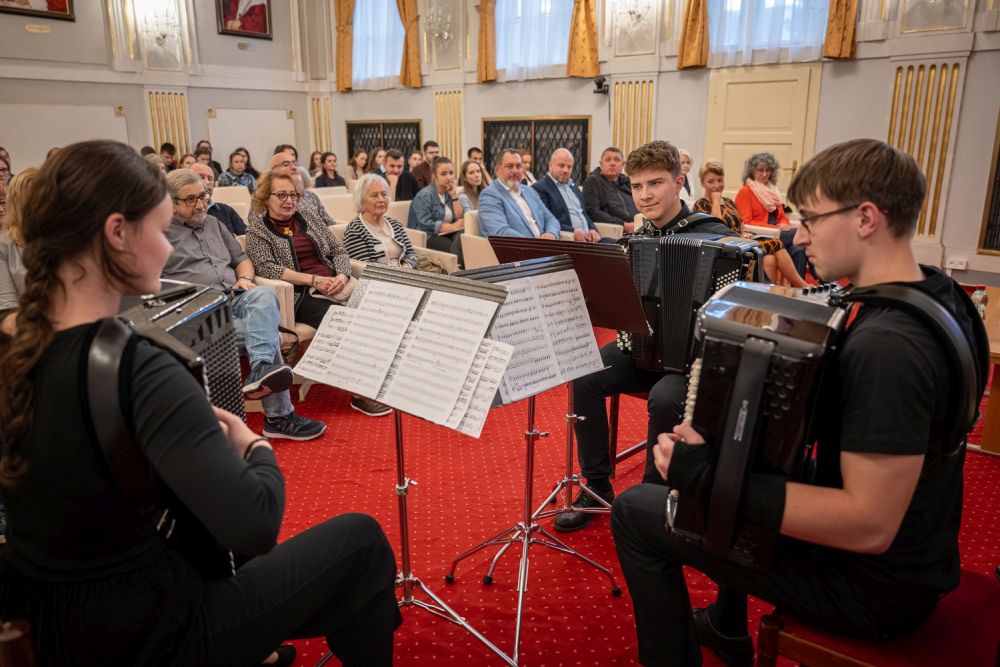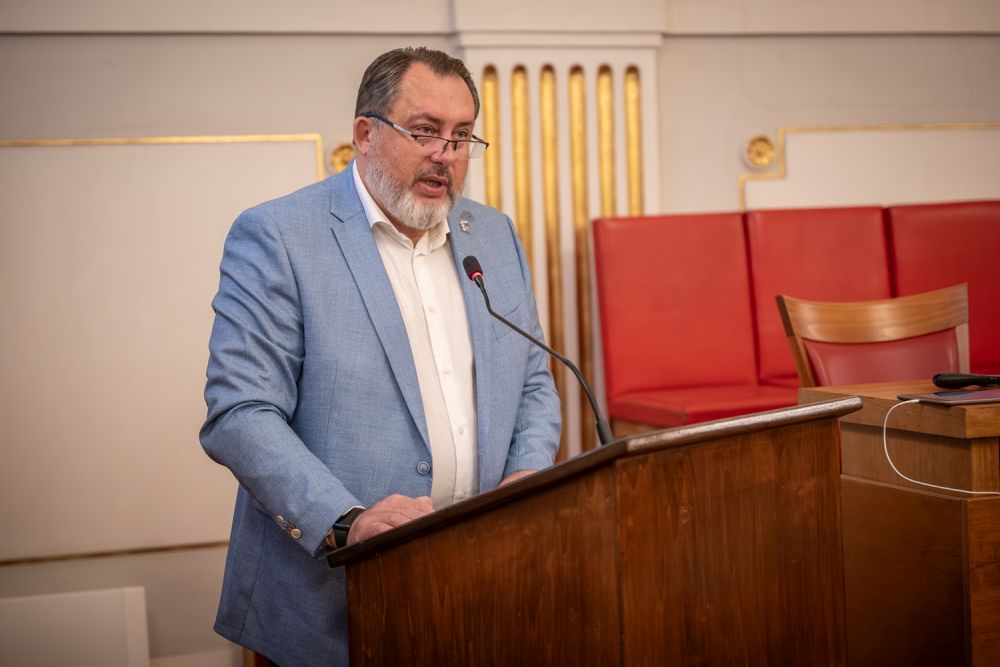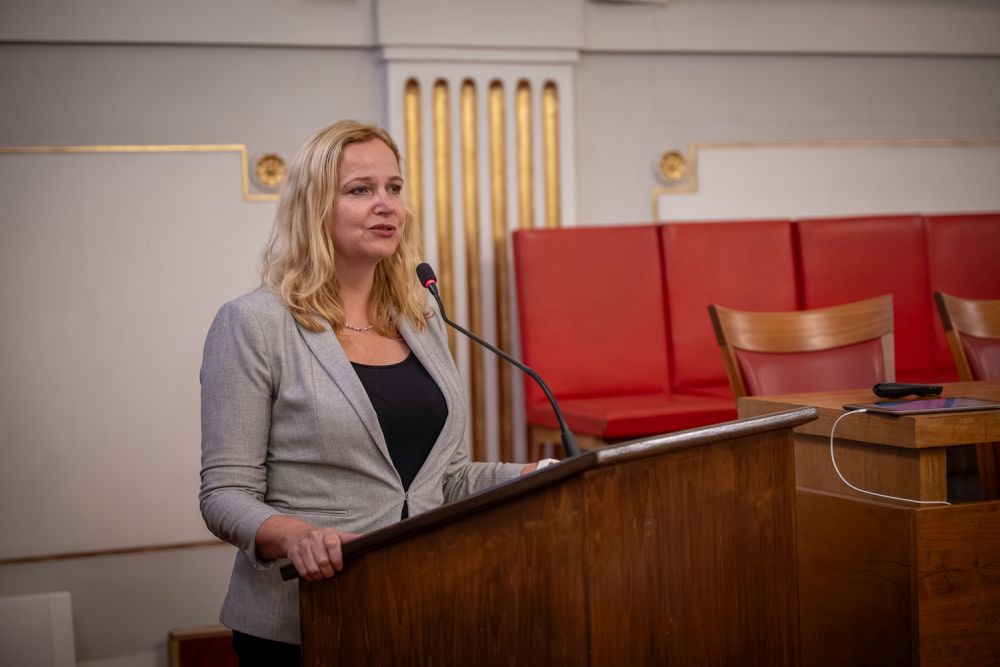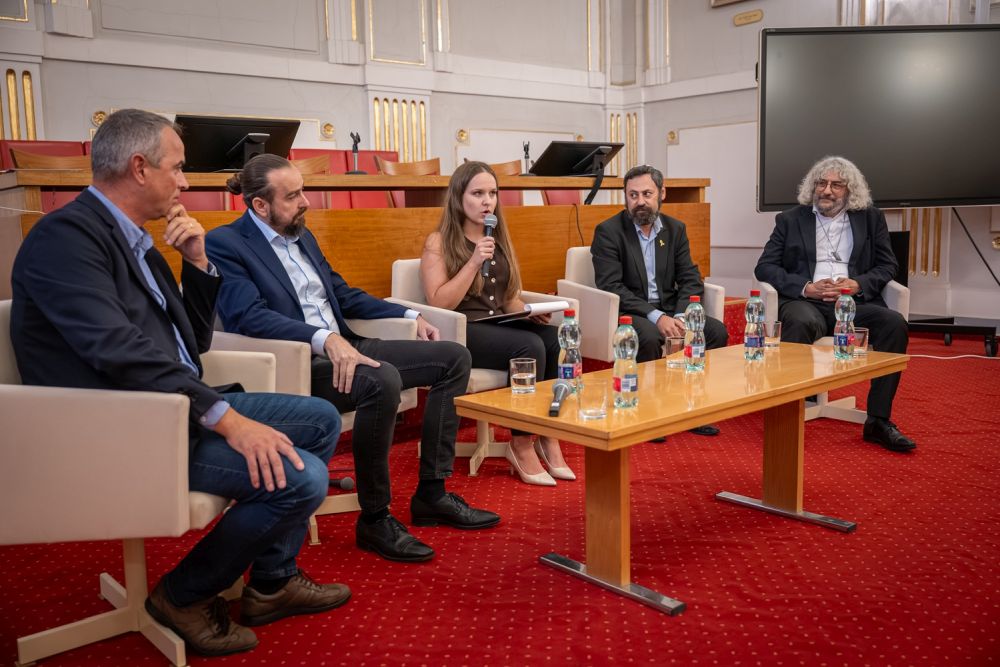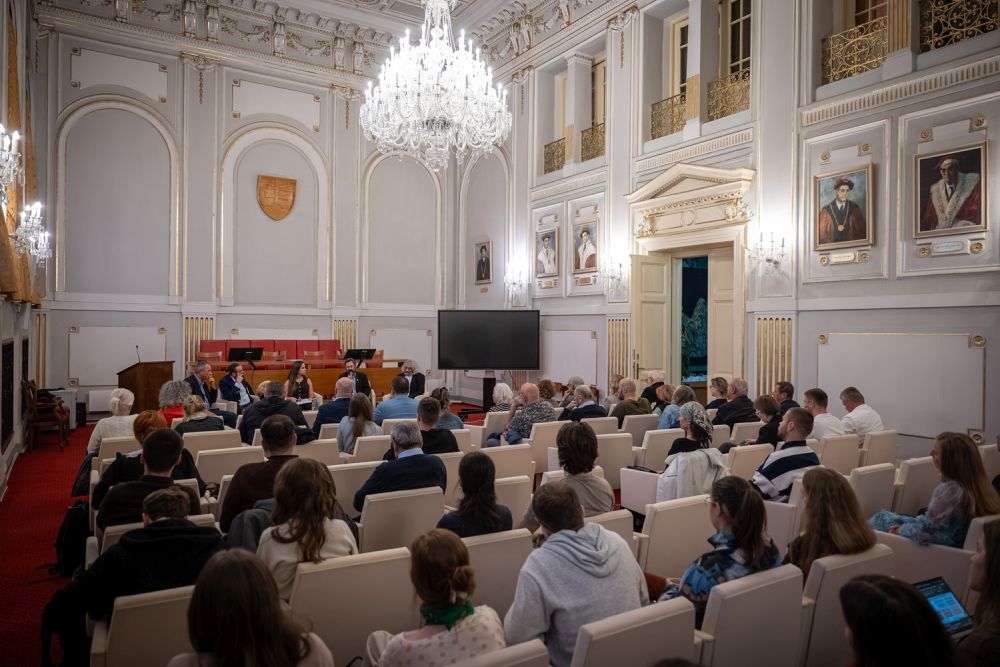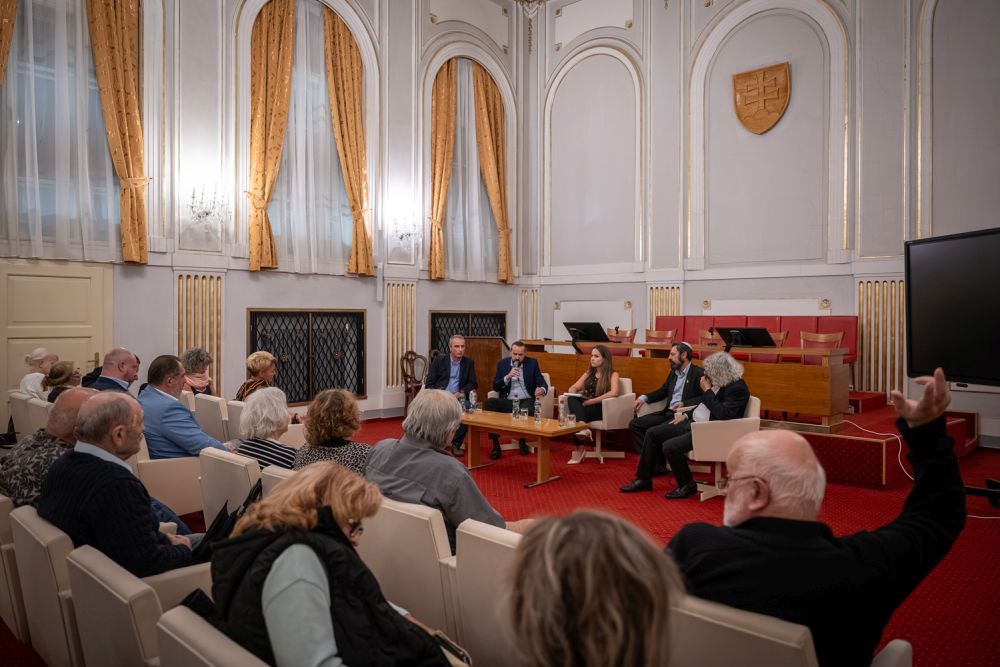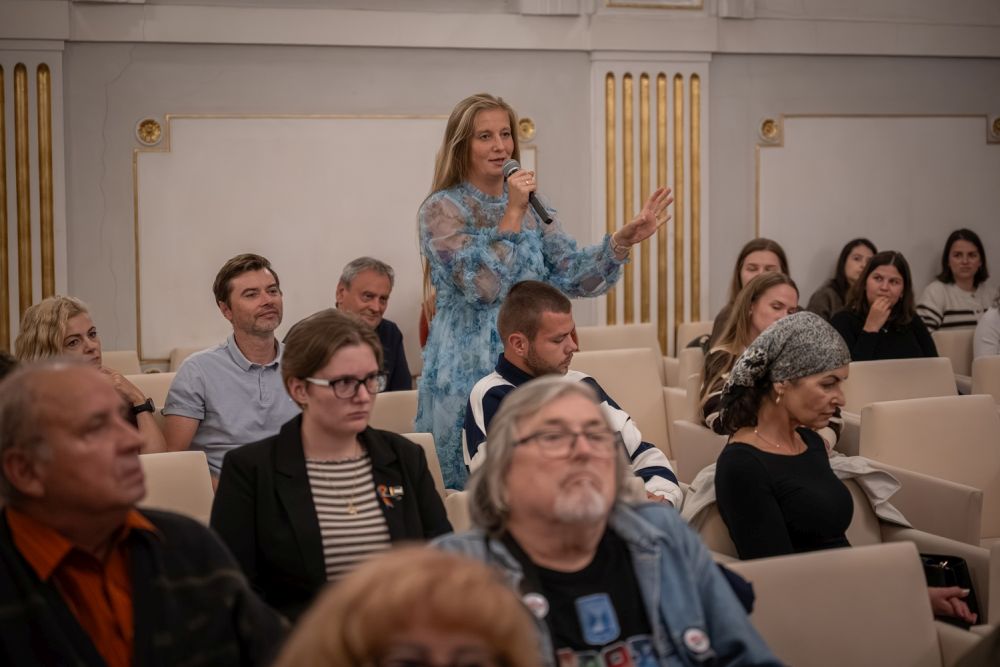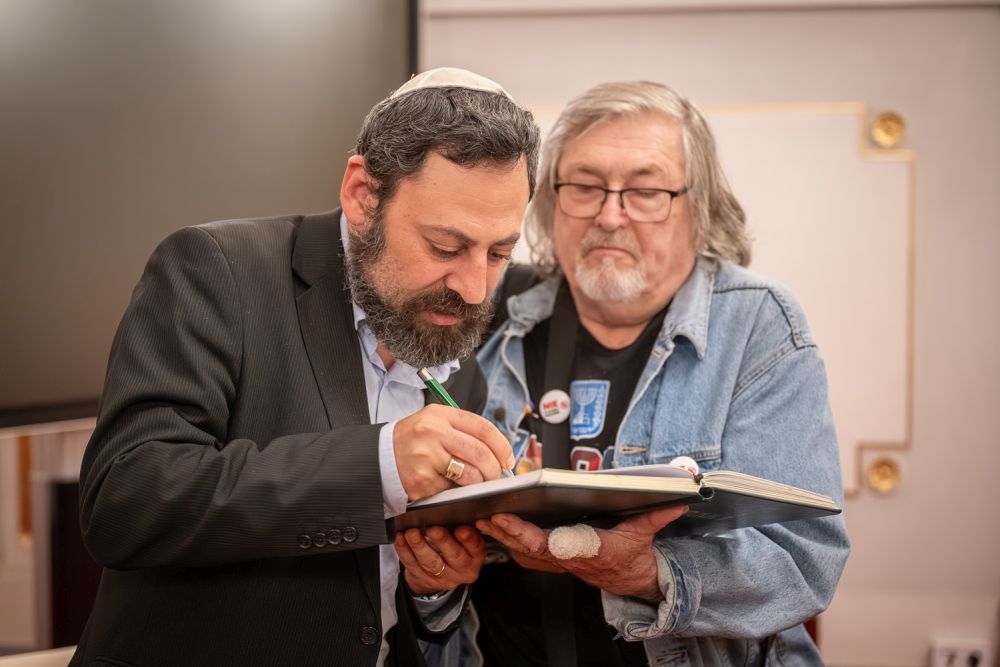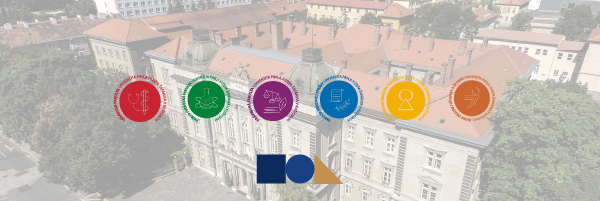On September 25, 2025, the Department of History of the Faculty of Arts at Pavol Jozef Šafárik University in Košice, together with the Carpathian Platform, organized a discussion in the Historic auditorium of the Pavol Jozef Šafárik University Rectorate on the occasion of Holocaust and Racial Violence Victims Day on the topic “Never Again is Now!“.
The participants in the discussion were the director of the Holocaust Museum in Sered, PhDr. Martin Korčok, PhD., Rabbi Misha Kapustin from the Central Union of Jewish Religious Communities in the Slovak Republic, Greek Catholic priest and university professor from the Department of History of the Faculty of Arts at Pavol Jozef Šafárik University in Košice, doc. ThDr. Peter Borza, PhD. and political scientist from the Institute for Public Affairs, Grigorij Mesežnikov. The entire discussion was moderated by Mgr. Viktória Švigárová, an internal doctoral student at the Department of History of the Faculty of Arts at Pavol Jozef Šafárik University.
The event was opened by an accordion trio from the Peter Dvorský Conservatory in Košice, followed by introductory remarks from the moderator. The discussion itself was opened with speeches by the chairman of the Carpathian Platform, Rostyslav Pyliaiev, and the dean of the Faculty of Arts at Pavol Jozef Šafárik University in Košice, prof. Mgr. Renáta Panocová, PhD.
During the discussion, participants touched on several aspects related to the issue of the Holocaust in today’s society. They discussed why we keep returning to the issue of the Holocaust and why this topic is important not only in terms of commemorating historical events, but also in the context of current social challenges. They analyzed the role that the Holocaust plays in collective and historical memory and the need to communicate it clearly to the wider public.
Special attention was also paid to the uniqueness of the Holocaust among other genocides and how this event transcends the Jewish community and becomes a society-wide and still relevant topic.
The discussants highlighted the differences between the concepts of anti-Semitism and anti-Zionism and drew attention to the tendency to trivialize and relativize the Holocaust, which can lead to a weakening of its historical and social significance. Last but not least, the participants also addressed the issue of Holocaust education in primary and secondary schools, where this topic is given relatively limited space in the curriculum due to insufficient history class hours. The need to create a long-term educational effect that would shape the historical awareness of students was emphasized.
At the end of the event, the audience was invited to join the discussion, express their opinions on the topics discussed, and ask questions to the panelists. This gave not only current and former teachers, but also the general public present at the discussion the opportunity to express their views.
The event created a space for dialogue on the issue of the Holocaust, which is still relevant today and needs to be discussed not only in terms of the nuances of factual treatment of the past, but also as part of public discourse. The importance of education on this issue was also emphasized, as it is necessary for the formation of historical awareness and a better understanding of the relevance of the Holocaust in today’s society.
Mgr. Veronika Tomková

